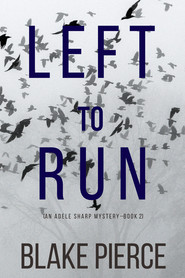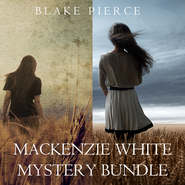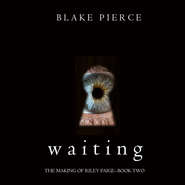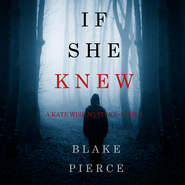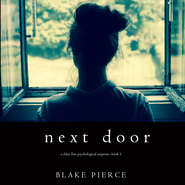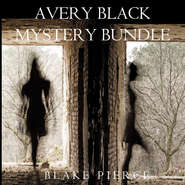По всем вопросам обращайтесь на: info@litportal.ru
(©) 2003-2024.
✖
Once Gone
Настройки чтения
Размер шрифта
Высота строк
Поля
Riley shrugged.
“She’s fourteen. She hates me.”
“That’s not good.”
“I hated everybody when I was fourteen,” she replied. “Didn’t you?”
Bill didn’t reply. It was hard to imagine Riley ever hating everybody.
“Wait’ll your boys get that age,” Riley said. “How old are they now? I forget.”
“Eight and ten,” Bill replied, then smiled. “The way things are going with Maggie, I don’t know if I’ll even be in their lives when they get to be April’s age.”
Riley tilted her head and looked at him with concern. He’d missed that caring look.
“That bad, huh?” she said.
He looked away, not wanting to think about it.
The two of them fell silent for a moment.
“What’s that you’re hiding on the floor?” she asked.
Bill glanced down then back up and smiled; even in her state, she never missed a thing.
“I’m not hiding anything,” Bill said, picking up the envelope and setting it on the table. “Just something I’d like to talk over with you.”
Riley smiled broadly. It was obvious that she knew perfectly well what he was really here for.
“Show me,” she said, then added, glancing nervously over at April, “Come on, let’s go out back. I don’t want her to see it.”
Riley took off her slippers and walked into the backyard barefoot ahead of Bill. They sat at a weathered wooden picnic table that had been there since well before Riley moved here, and Bill gazed around the small yard with its single tree. There were woods on all sides. It made him forget he was even near a city.
Too isolated, he thought.
He’d never felt that this place was right for Riley. The little ranch-style house was fifteen miles out of town, rundown, and very ordinary. It was just off a secondary road, with nothing else but forests and pastures in sight. Not that he’d ever thought suburban life was right for her either. He had a hard time picturing her doing the cocktail party circuit. She could still, at least, drive into Fredericksburg and take the Amtrak to Quantico when she came back to work. When she still could work.
“Show me what you’ve got,” she said.
He spread the reports and photographs across the table.
“Remember the Daggett case?” he asked. “You were right. The killer wasn’t through.”
He saw her eyes widen as she pored over the pictures. A long silence fell as she studied the files intensely, and he wondered if this might be what she needed to come back – or if it would set her back.
“So what do you think?” he finally asked.
Another silence. She still did not look up from the file.
Finally, she looked up, and when she did, he was shocked to see tears well up in her eyes. He had never seen her cry before, not even on the worst cases, up close to a corpse. This was definitely not the Riley he knew. That killer had done something to her, more than he knew.
She choked back a sob.
“I’m scared, Bill,” she said. “I’m so scared. All the time. Of everything.”
Bill felt his heart drop seeing her like this. He wondered where the old Riley had gone, the one person he could always rely on to be tougher than him, the rock he could always turn to in times of trouble. He missed her more than he could say.
“He’s dead, Riley,” he said, in the most confident tone he could muster. “He can’t hurt you anymore.”
She shook her head.
“You don’t know that.”
“Sure I do,” he answered. “They found his body after the explosion.”
“They couldn’t identify it,” she said.
“You know it was him.”
Her face fell forward and she covered it with one hand as she wept. He held her other hand across the table.
“This is a new case,” he said. “It’s got nothing to do with what happened to you.”
She shook her head.
“It doesn’t matter.”
Slowly, as she wept, she reached up and handed him the file, looking away.
“I’m sorry,” she said, looking down, holding it out with a trembling hand. “I think you should go,” she added.
Bill, shocked, saddened, reached out and took the file back. Never in a million years would he have expected this outcome.
Bill sat there for a moment, struggling against his own tears. Finally, he gently patted her hand, got up from the table, and made his way back through the house. April was still sitting in the living room, her eyes closed, nodding her head to her music.
* * *
Riley sat crying alone at the picnic table after Bill left.
I thought I was okay, she thought.
She’d really wanted to be okay, for Bill. And she’d thought she could actually carry it off. Sitting in the kitchen talking about trivialities had been all right. Then they had gone outside and when she had seen the file, she’d thought she’d be okay, too. Better than okay, really. She was getting caught up in it. Her old lust for the job was rekindled, she wanted to get back in the field. She was compartmentalizing, of course, thinking of those nearly identical murders as a puzzle to solve, almost in the abstract, an intellectual game. That too was fine. Her therapist had told her she would have to do that if she ever hoped to go back to work.
But then for some reason, the intellectual puzzle became what it really and truly was – a monstrous human tragedy in which two innocent women had died in the throes of immeasurable pain and terror. And she’d suddenly wondered: Was it as bad for them as it was for me?
Her body was now flooded with panic and fear. And embarrassment, shame. Bill was her partner and her best friend. She owed him so much. He’d stood by her during the last weeks when nobody else would. She couldn’t have survived her time in the hospital without him. The last thing she wanted was for him to see her reduced to a state of helplessness.
She heard April yell from the back screen door.
“She’s fourteen. She hates me.”
“That’s not good.”
“I hated everybody when I was fourteen,” she replied. “Didn’t you?”
Bill didn’t reply. It was hard to imagine Riley ever hating everybody.
“Wait’ll your boys get that age,” Riley said. “How old are they now? I forget.”
“Eight and ten,” Bill replied, then smiled. “The way things are going with Maggie, I don’t know if I’ll even be in their lives when they get to be April’s age.”
Riley tilted her head and looked at him with concern. He’d missed that caring look.
“That bad, huh?” she said.
He looked away, not wanting to think about it.
The two of them fell silent for a moment.
“What’s that you’re hiding on the floor?” she asked.
Bill glanced down then back up and smiled; even in her state, she never missed a thing.
“I’m not hiding anything,” Bill said, picking up the envelope and setting it on the table. “Just something I’d like to talk over with you.”
Riley smiled broadly. It was obvious that she knew perfectly well what he was really here for.
“Show me,” she said, then added, glancing nervously over at April, “Come on, let’s go out back. I don’t want her to see it.”
Riley took off her slippers and walked into the backyard barefoot ahead of Bill. They sat at a weathered wooden picnic table that had been there since well before Riley moved here, and Bill gazed around the small yard with its single tree. There were woods on all sides. It made him forget he was even near a city.
Too isolated, he thought.
He’d never felt that this place was right for Riley. The little ranch-style house was fifteen miles out of town, rundown, and very ordinary. It was just off a secondary road, with nothing else but forests and pastures in sight. Not that he’d ever thought suburban life was right for her either. He had a hard time picturing her doing the cocktail party circuit. She could still, at least, drive into Fredericksburg and take the Amtrak to Quantico when she came back to work. When she still could work.
“Show me what you’ve got,” she said.
He spread the reports and photographs across the table.
“Remember the Daggett case?” he asked. “You were right. The killer wasn’t through.”
He saw her eyes widen as she pored over the pictures. A long silence fell as she studied the files intensely, and he wondered if this might be what she needed to come back – or if it would set her back.
“So what do you think?” he finally asked.
Another silence. She still did not look up from the file.
Finally, she looked up, and when she did, he was shocked to see tears well up in her eyes. He had never seen her cry before, not even on the worst cases, up close to a corpse. This was definitely not the Riley he knew. That killer had done something to her, more than he knew.
She choked back a sob.
“I’m scared, Bill,” she said. “I’m so scared. All the time. Of everything.”
Bill felt his heart drop seeing her like this. He wondered where the old Riley had gone, the one person he could always rely on to be tougher than him, the rock he could always turn to in times of trouble. He missed her more than he could say.
“He’s dead, Riley,” he said, in the most confident tone he could muster. “He can’t hurt you anymore.”
She shook her head.
“You don’t know that.”
“Sure I do,” he answered. “They found his body after the explosion.”
“They couldn’t identify it,” she said.
“You know it was him.”
Her face fell forward and she covered it with one hand as she wept. He held her other hand across the table.
“This is a new case,” he said. “It’s got nothing to do with what happened to you.”
She shook her head.
“It doesn’t matter.”
Slowly, as she wept, she reached up and handed him the file, looking away.
“I’m sorry,” she said, looking down, holding it out with a trembling hand. “I think you should go,” she added.
Bill, shocked, saddened, reached out and took the file back. Never in a million years would he have expected this outcome.
Bill sat there for a moment, struggling against his own tears. Finally, he gently patted her hand, got up from the table, and made his way back through the house. April was still sitting in the living room, her eyes closed, nodding her head to her music.
* * *
Riley sat crying alone at the picnic table after Bill left.
I thought I was okay, she thought.
She’d really wanted to be okay, for Bill. And she’d thought she could actually carry it off. Sitting in the kitchen talking about trivialities had been all right. Then they had gone outside and when she had seen the file, she’d thought she’d be okay, too. Better than okay, really. She was getting caught up in it. Her old lust for the job was rekindled, she wanted to get back in the field. She was compartmentalizing, of course, thinking of those nearly identical murders as a puzzle to solve, almost in the abstract, an intellectual game. That too was fine. Her therapist had told her she would have to do that if she ever hoped to go back to work.
But then for some reason, the intellectual puzzle became what it really and truly was – a monstrous human tragedy in which two innocent women had died in the throes of immeasurable pain and terror. And she’d suddenly wondered: Was it as bad for them as it was for me?
Her body was now flooded with panic and fear. And embarrassment, shame. Bill was her partner and her best friend. She owed him so much. He’d stood by her during the last weeks when nobody else would. She couldn’t have survived her time in the hospital without him. The last thing she wanted was for him to see her reduced to a state of helplessness.
She heard April yell from the back screen door.











